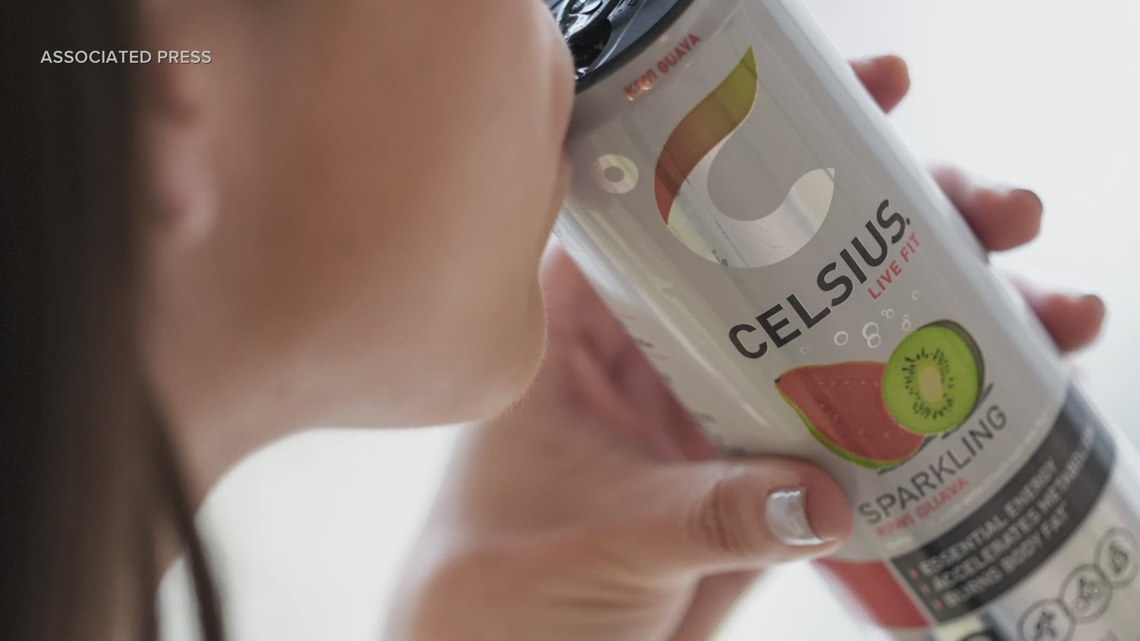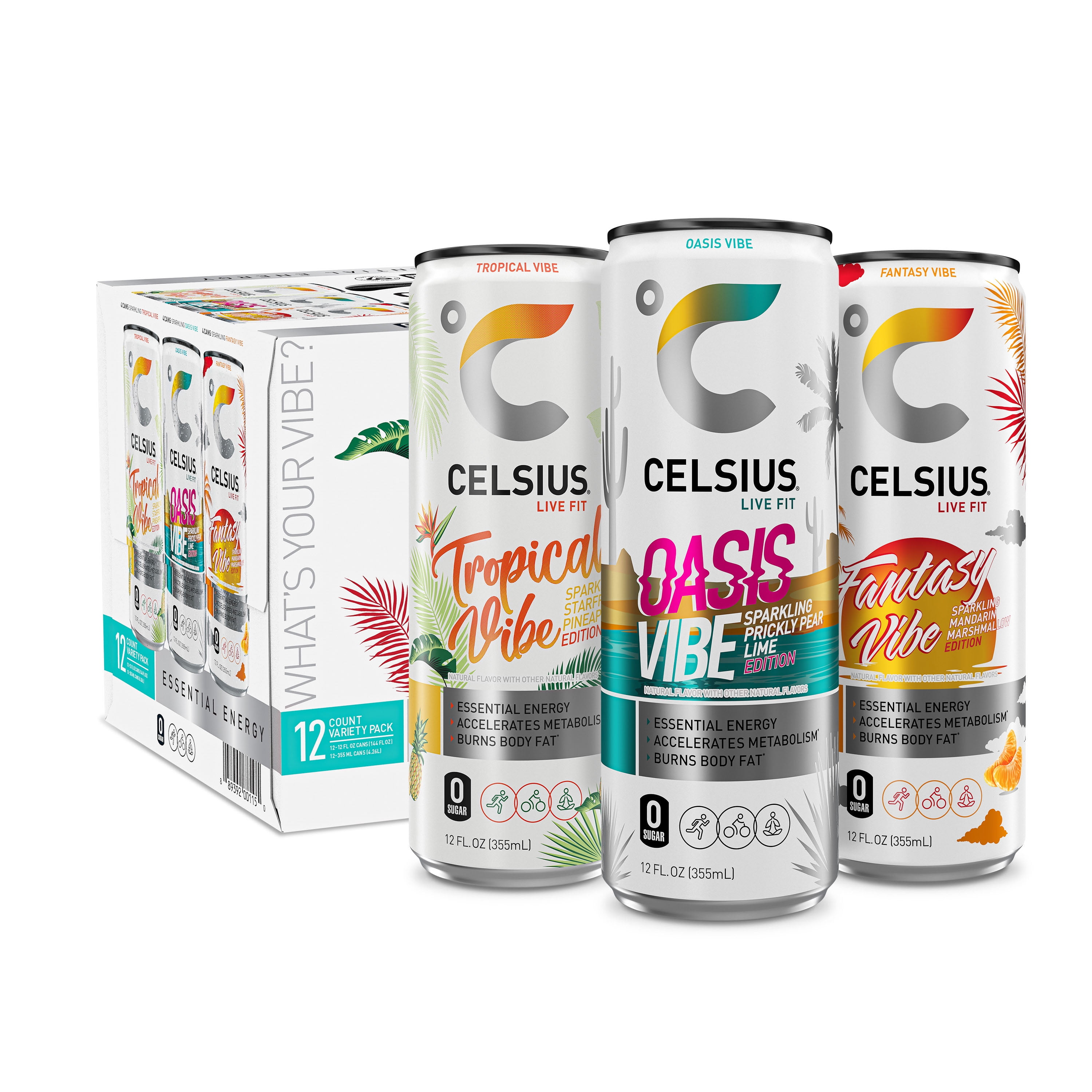Celsius Energy Drink Causing Liver Damage: The Buzz Behind The Beverage
Energy drinks have taken the world by storm, but are they really as harmless as they seem? Celsius energy drink, marketed as a healthy alternative to traditional energy drinks, has recently been under scrutiny for its potential link to liver damage. If you're a fan of this beverage, it's time to dive deeper into the facts and separate hype from reality.
Now, I know what you're thinking—how could something that claims to boost metabolism and provide clean energy actually harm your liver? Well, buckle up because we're about to explore the science, the controversies, and the truth behind the claims. Whether you're a loyal Celsius drinker or just curious, this article will give you all the info you need.
Before we jump into the nitty-gritty details, let's address the elephant in the room: why should you care? The liver is one of the most important organs in your body, responsible for filtering toxins, producing proteins, and regulating metabolism. If something you're consuming regularly could potentially harm it, you deserve to know. So, let's get started!
Read also:Taylor Tomlinsons Sister The Untold Story Behind The Laugh
What is Celsius Energy Drink Anyway?
First things first, what exactly is Celsius energy drink? It’s not your average sugary energy drink; it’s marketed as a "metabolism booster" with zero sugar and zero calories. Sounds too good to be true, right? Well, it’s been gaining popularity among fitness enthusiasts and people looking for an energy boost without the guilt. But does it live up to its hype?
Celsius is packed with ingredients like green tea extract, caffeine, and a blend of vitamins and minerals. The company claims that it not only gives you energy but also helps burn calories. Sounds amazing, but as we’ll explore later, not everything is as rosy as it seems.
Why Has Celsius Become So Popular?
Here's the deal: Celsius has positioned itself as more than just an energy drink. It’s marketed as a lifestyle choice for people who want to stay active, healthy, and energized. With slogans like "Burn Calories, Not Just Energy," it’s no wonder people are flocking to it. But let’s not forget that marketing is powerful, and sometimes it can overshadow the actual science behind a product.
Some of the key reasons behind Celsius's popularity include:
- Zero sugar claims
- Low-calorie profile
- Focus on metabolism boosting
- Endorsements from fitness influencers
Is Celsius Energy Drink Safe?
This is the million-dollar question, isn't it? While Celsius markets itself as a healthy alternative, recent reports have raised concerns about its safety, particularly when it comes to liver health. But before we dive into the specifics, let’s talk about what makes an energy drink "safe" in the first place.
Energy drinks, in general, contain caffeine, which is the main ingredient that gives you that much-needed boost. However, excessive caffeine consumption has been linked to various health issues, including heart problems, anxiety, and, yes, liver damage. So, how does Celsius fit into this equation?
Read also:Hyungry Temporary Replacement The Ultimate Guide To Finding The Perfect Fit
Breaking Down the Ingredients
Let’s take a closer look at the key ingredients in Celsius energy drink:
- Caffeine: The primary ingredient responsible for the energy boost. While moderate caffeine intake is generally safe, excessive consumption can lead to problems.
- Green Tea Extract: Known for its antioxidant properties, but in high doses, it can be toxic to the liver.
- Vitamins and Minerals: These are generally beneficial, but too much of anything can be harmful.
Now, here’s the kicker: while these ingredients are safe in small amounts, the cumulative effect of consuming them regularly could pose risks, especially for people with pre-existing liver conditions.
Can Energy Drinks Cause Liver Damage?
Alright, let’s address the elephant in the room: can energy drinks, including Celsius, actually cause liver damage? The short answer is yes, but it depends on several factors. The liver is incredibly resilient, but it has its limits. When exposed to excessive amounts of certain compounds, it can become overwhelmed, leading to damage.
Studies have shown that certain energy drink ingredients, like green tea extract, can be toxic to the liver in high doses. In fact, there have been documented cases of people experiencing liver damage after consuming large amounts of energy drinks. While these cases are rare, they highlight the potential risks associated with excessive consumption.
What the Science Says
Research on the effects of energy drinks on liver health is still ongoing, but some studies have raised red flags. For instance, a study published in the Journal of Clinical and Translational Hepatology found that excessive consumption of green tea extract, a common ingredient in energy drinks, could lead to liver toxicity. Another study highlighted the potential risks of combining caffeine with other compounds, which could exacerbate liver damage.
It’s important to note that these studies are not conclusive, but they do suggest that moderation is key. If you’re a regular Celsius drinker, it might be worth reconsidering your consumption habits.
Who Is Most at Risk?
Not everyone who consumes energy drinks will experience liver damage, but certain groups are more vulnerable than others. If you fall into any of the following categories, you might want to reconsider your energy drink intake:
- People with pre-existing liver conditions
- Individuals with a history of alcohol abuse
- Those taking medications that affect liver function
- People who consume energy drinks in large quantities
If you’re unsure whether you’re at risk, it’s always a good idea to consult with a healthcare professional. Your liver is too important to gamble with!
Signs of Liver Damage
So, how do you know if your liver is in trouble? The symptoms of liver damage can vary, but some common signs include:
- Fatigue
- Jaundice (yellowing of the skin and eyes)
- Abdominal pain
- Nausea and vomiting
- Loss of appetite
If you experience any of these symptoms, don’t wait—seek medical attention immediately. Early diagnosis and treatment can make a huge difference in preventing further damage.
How Much is Too Much?
When it comes to energy drinks, moderation is key. But how much is too much? The answer depends on several factors, including your body weight, metabolism, and tolerance to caffeine. However, most health experts recommend limiting caffeine intake to no more than 400 mg per day for adults.
For reference, a single can of Celsius energy drink contains around 200 mg of caffeine. If you’re drinking multiple cans a day, you could easily exceed the recommended limit. And let’s not forget about other sources of caffeine in your diet, like coffee and tea. It all adds up!
Tips for Safe Consumption
If you’re not ready to give up energy drinks altogether, here are a few tips to help you consume them safely:
- Limit your intake to one or two cans per day
- Choose brands with lower caffeine content
- Stay hydrated by drinking plenty of water
- Avoid mixing energy drinks with alcohol
- Consult with a healthcare professional if you have any concerns
Alternatives to Energy Drinks
If you’re looking for a way to boost your energy without the potential risks associated with energy drinks, there are plenty of alternatives to consider. Here are a few options:
- Natural sources of caffeine: Coffee and tea are great options that provide a gentle energy boost without the added sugars and artificial ingredients.
- Hydration: Dehydration can make you feel sluggish, so drinking plenty of water is a simple yet effective way to boost your energy levels.
- Healthy snacks: Foods like nuts, fruits, and yogurt can provide a natural energy boost without the crash.
Remember, energy drinks are just one option in a sea of possibilities. Don’t be afraid to explore other ways to fuel your body!
The Bottom Line
At the end of the day, it’s all about balance. Energy drinks, including Celsius, can be a convenient way to boost your energy, but they’re not without risks. If you’re a regular consumer, it’s important to be aware of the potential dangers and take steps to protect your liver health.
Conclusion: Your Liver Matters
So, there you have it—the buzz behind Celsius energy drink and its potential link to liver damage. While the science is still evolving, one thing is clear: your liver is an incredibly important organ that deserves your attention and care. If you’re concerned about your energy drink consumption, don’t hesitate to talk to a healthcare professional.
And remember, knowledge is power. By staying informed and making smart choices, you can enjoy the benefits of energy drinks without compromising your health. So, what are you waiting for? Share this article, leave a comment, and let’s keep the conversation going!
Table of Contents
- What is Celsius Energy Drink Anyway?
- Why Has Celsius Become So Popular?
- Is Celsius Energy Drink Safe?
- Breaking Down the Ingredients
- Can Energy Drinks Cause Liver Damage?
- What the Science Says
- Who Is Most at Risk?
- Signs of Liver Damage
- How Much is Too Much?
- Alternatives to Energy Drinks


